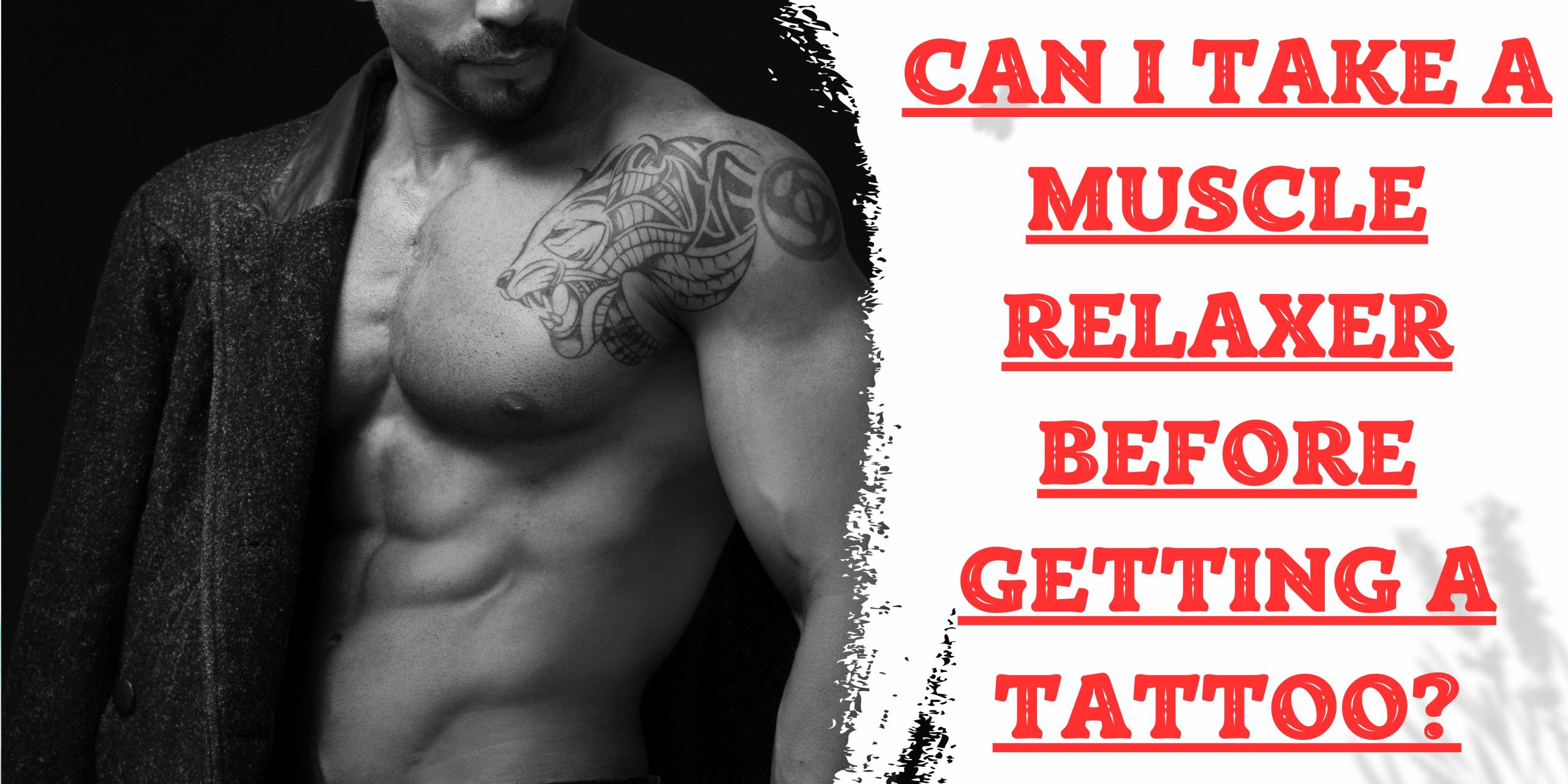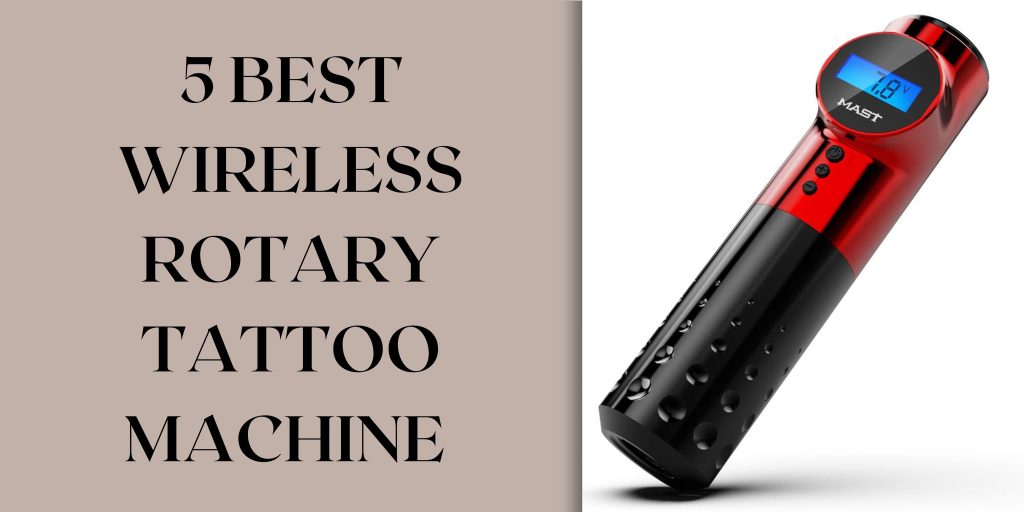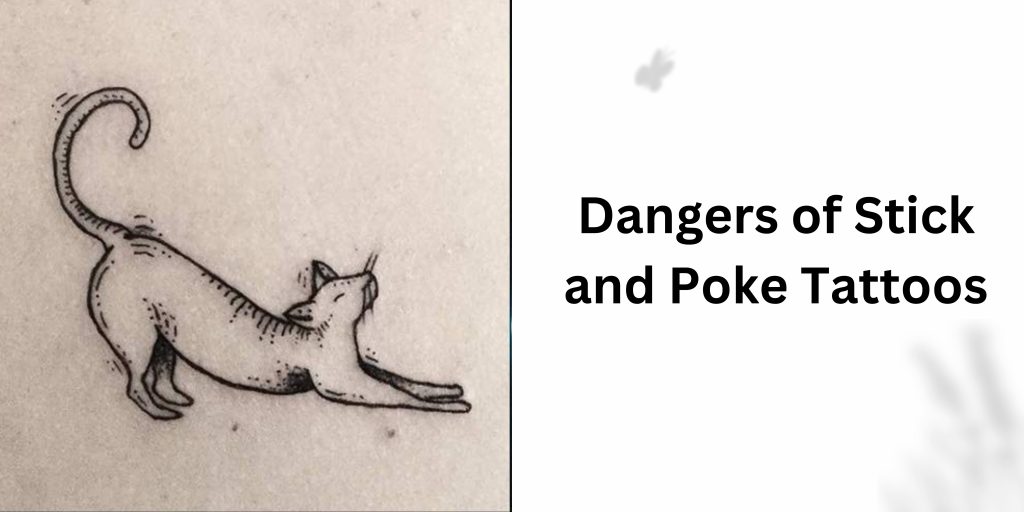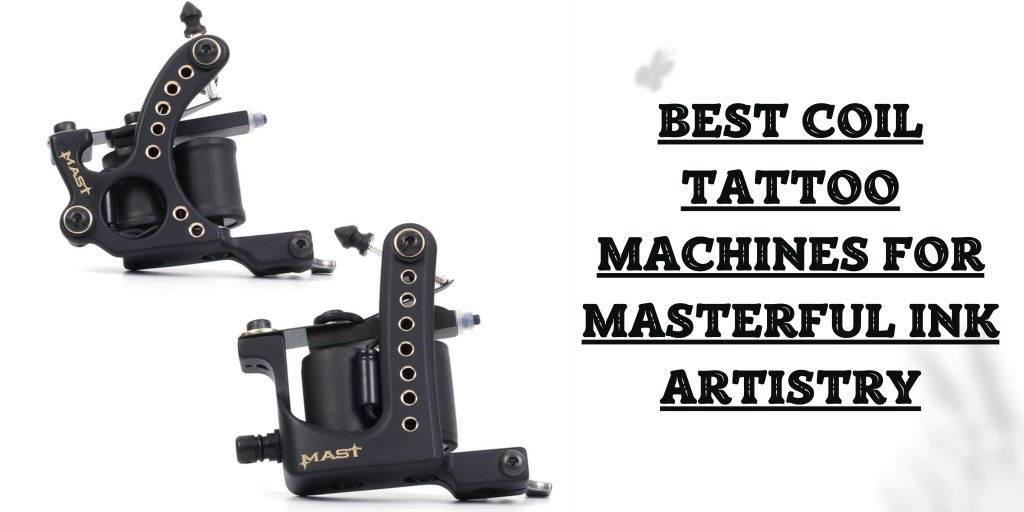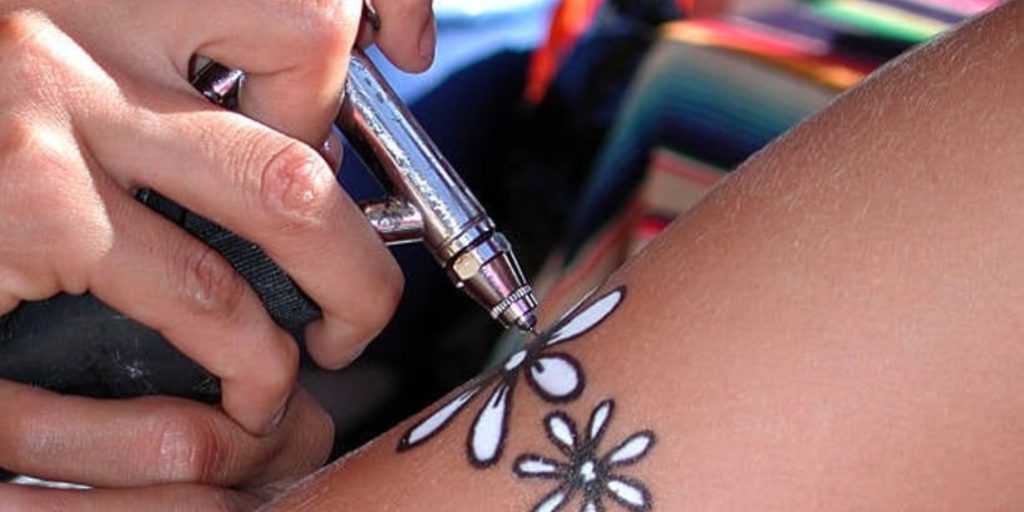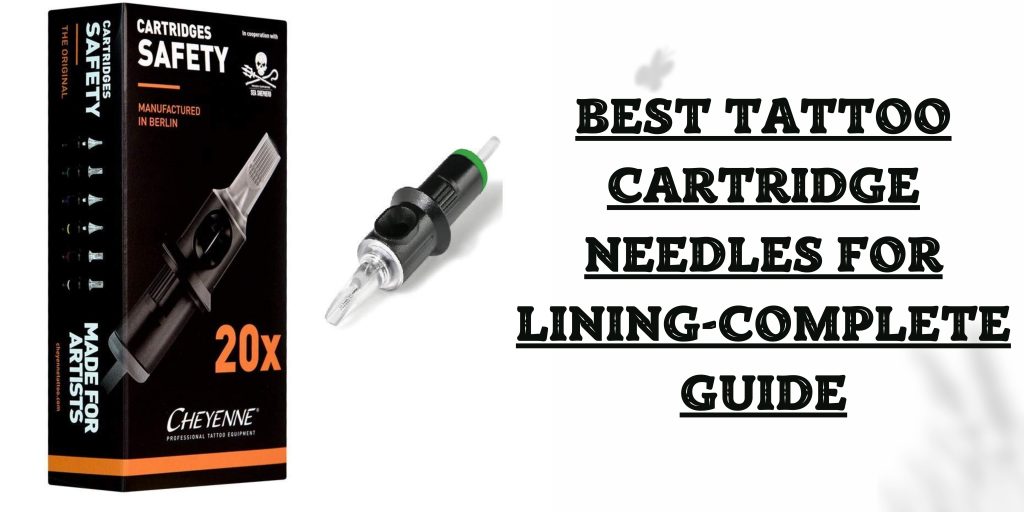Getting a tattoo can be an uncomfortable experience, and for some people, the pain may be difficult to manage. Muscle relaxers are commonly used to help alleviate muscle pain and tension, but can they be used before getting a tattoo? In this article, we will explore about can I take a muscle relaxer before getting a tattoo.
What are muscle relaxers?
Muscle relaxers, also known as muscle relaxants, are medications that help relieve muscle pain and tension. They work by reducing the activity of the muscles, which can help to decrease muscle spasms and improve mobility. Muscle relaxers are commonly prescribed for conditions such as muscle strains, sprains, and spasms, and can also be used to treat certain types of back pain.
Read More: Best Disinfectants for Your Tattoo Studio

Types of muscle relaxers
There are several types of muscle relaxers available, each with its own unique benefits and risks. Some of the most common types of muscle relaxers include:

Baclofen:
This medication is used to treat muscle spasms caused by certain conditions such as multiple sclerosis and spinal cord injuries. It works by relaxing the muscles and reducing spasms.
Cyclobenzaprine:
This medication is used to treat muscle spasms and pain caused by musculoskeletal conditions such as fibromyalgia and back pain. It works by reducing muscle activity and promoting relaxation.
Methocarbamol:
This medication is used to treat muscle spasms and pain caused by injuries or musculoskeletal conditions. It works by blocking nerve signals that cause muscles to contract.
Tizanidine:
This medication is used to treat muscle spasms and spasticity caused by conditions such as multiple sclerosis and spinal cord injuries. It works by reducing muscle activity and promoting relaxation.
Read More: Best indoor tanning lotion
Is it safe to take a muscle relaxer before getting a tattoo?
While muscle relaxers can help to alleviate muscle pain and tension, they are not recommended to be taken before getting a tattoo. This is because muscle relaxers can cause drowsiness and impair your ability to make decisions and react quickly. This can be dangerous during the tattooing process, as you need to be able to communicate with the tattoo artist and respond quickly if you experience any discomfort or pain.
Additionally, muscle relaxers can increase bleeding and bruising, which can make it more difficult for the tattoo artist to create clean, sharp lines. This can result in a less-than-ideal tattoo and may require additional touch-ups or corrections.
Alternatives to muscle relaxers for tattoo pain management
If you are concerned about the pain associated with getting a tattoo, there are several alternatives to muscle relaxers that can help to alleviate discomfort. Some of these alternatives include:
Topical numbing creams:
These creams can be applied to the skin before the tattooing process to help numb the area and reduce pain.
Pain-relieving sprays:
Similar to topical numbing creams, pain-relieving sprays can be applied to the skin to help numb the area and reduce pain.
Ice packs:
Applying an ice pack to the skin before the tattooing process can help to numb the area and reduce pain.
Relaxation techniques:
Practising relaxation techniques such as deep breathing or meditation can help to reduce anxiety and stress associated with the tattooing process.
Editor Choice
Temporary Tattoos Stickers
How do you relax before a tattoo?
Getting a tattoo can be a nerve-wracking experience for some people, but there are several ways to relax before getting a tattoo. Here are some tips to help you relax before your tattoo session:

Practice breathing techniques:
Slow and controlled breathing can help you relax and reduce anxiety. Take deep breaths and exhale slowly to calm your nerves.
Listen to music:
Listening to music can help you distract yourself from the pain and relax your mind. Choose music that you find calming or uplifting.
Visualize positive outcomes:
Visualize the end result of your tattoo and how happy you will be with it. Focus on positive outcomes and avoid negative thoughts.
Use numbing cream:
Numbing cream can be applied to the skin before the tattooing process to reduce pain and discomfort. However, it is important to follow the instructions carefully and use it only as directed by your tattoo artist.
Take breaks:
If you feel overwhelmed or anxious during the tattooing process, ask your tattoo artist for a break. You can use this time to stretch, hydrate, and calm yourself down. and you should also proper sleep. I help you recover faster
Bring a support person:
Having a friend or family member with you during the tattooing process can provide emotional support and help you relax.
While muscle relaxers may help to alleviate muscle pain and tension, taking them before getting a tattoo has both pros and cons. Here are some of the pros and cons of taking a muscle relaxer before getting a tattoo:
Pros
- Muscle relaxers can help to reduce muscle tension and pain, which may make the tattooing process more comfortable.
- For individuals with certain medical conditions, such as fibromyalgia or multiple sclerosis, muscle relaxers may be necessary to manage pain and muscle spasms.
Cons
- Muscle relaxers can cause drowsiness and impair your ability to make decisions and react quickly, which can be dangerous during the tattooing process.
- Muscle relaxers can increase bleeding and bruising, which can make it more difficult for the tattoo artist to create clean, sharp lines.
- Muscle relaxers can interact with other medications you may be taking or with the ink used in the tattoo, which can cause adverse reactions.
- Taking muscle relaxers before getting a tattoo may not be recommended by your doctor or the tattoo artist, as they may have concerns about your safety and the quality of the tattoo.
Conclusion
While muscle relaxers may be effective at relieving muscle pain and tension, they are not recommended to be taken before getting a tattoo. Taking a muscle relaxer can impair your ability to react quickly and communicate with your tattoo artist, and can also increase bleeding and bruising, resulting in a less-than-ideal tattoo. If you are concerned about the pain associated with getting a tattoo, there are several alternatives to muscle relaxers that can help to alleviate discomfort, such as topical numbing creams, pain-relieving sprays, ice packs

